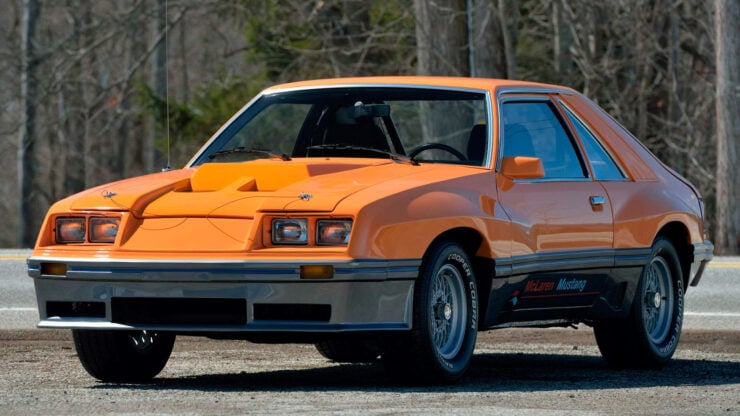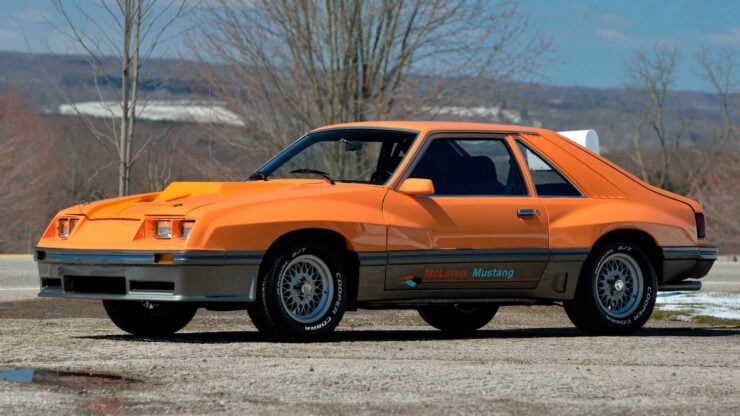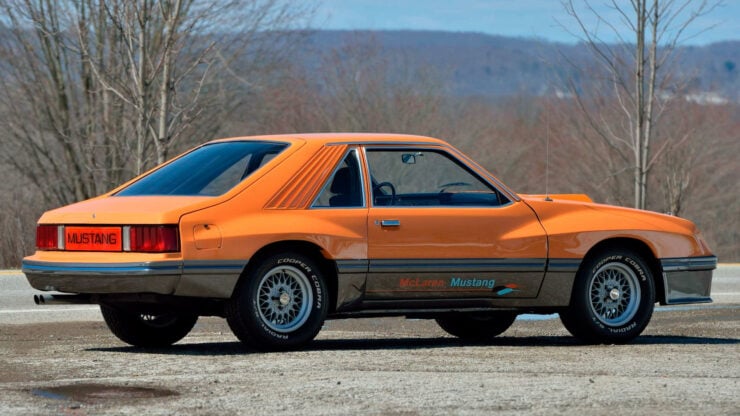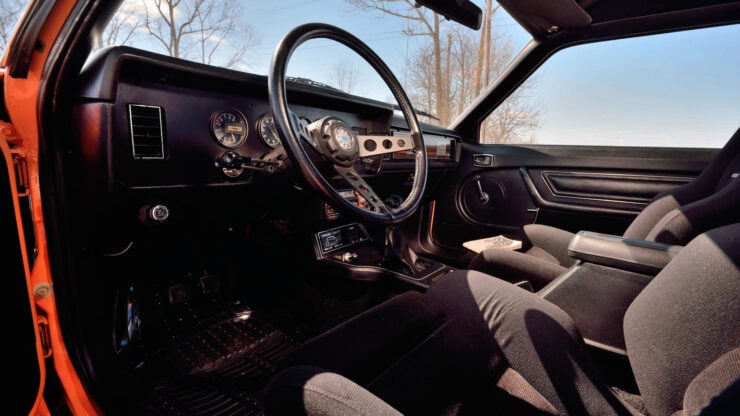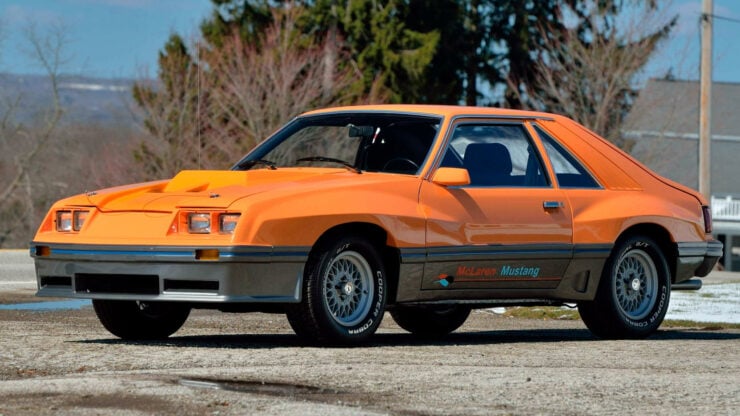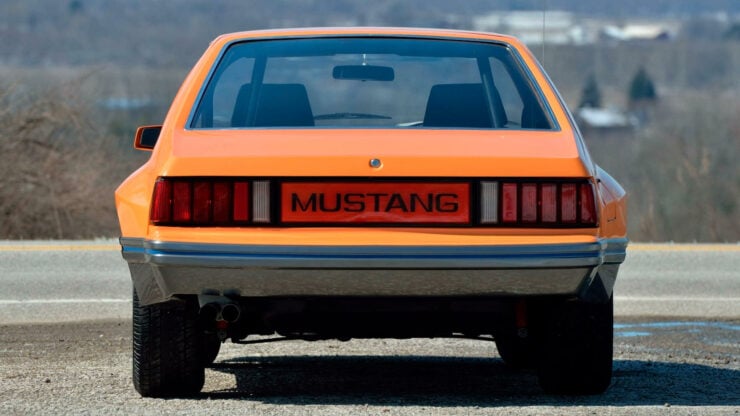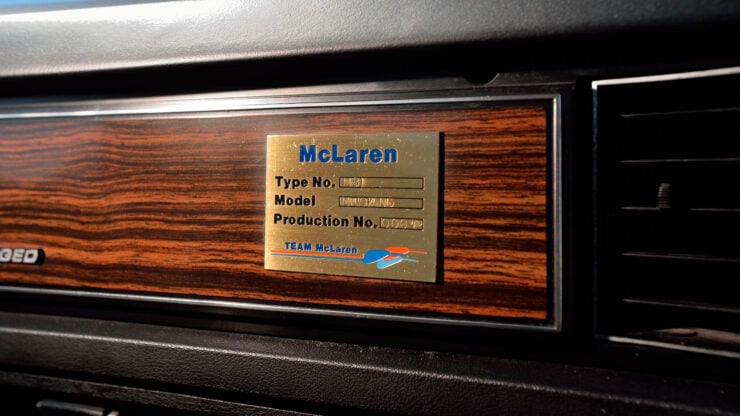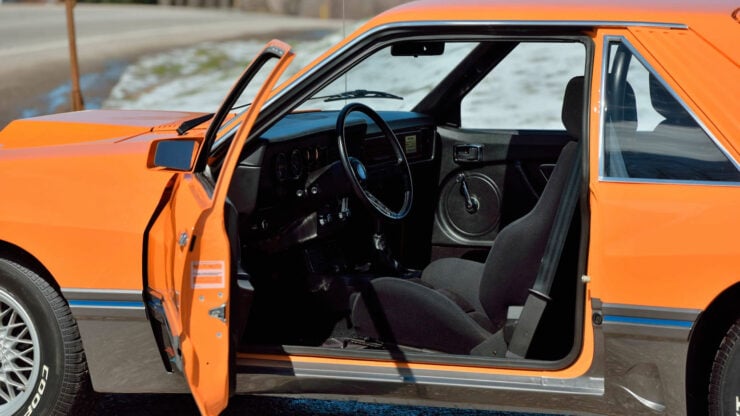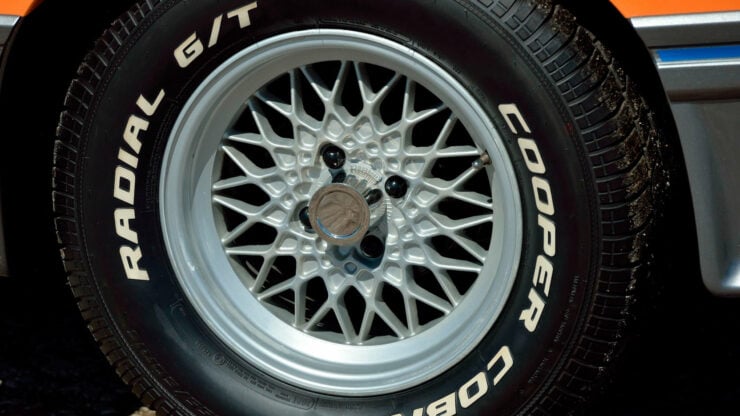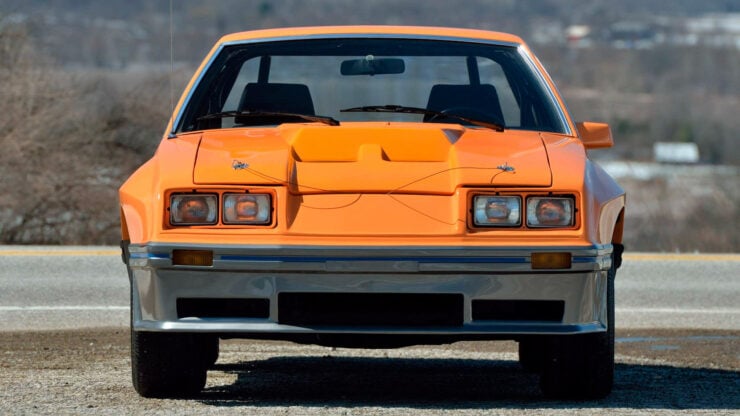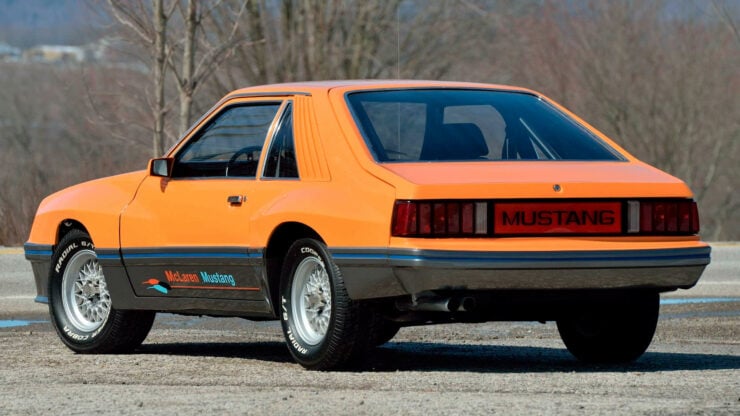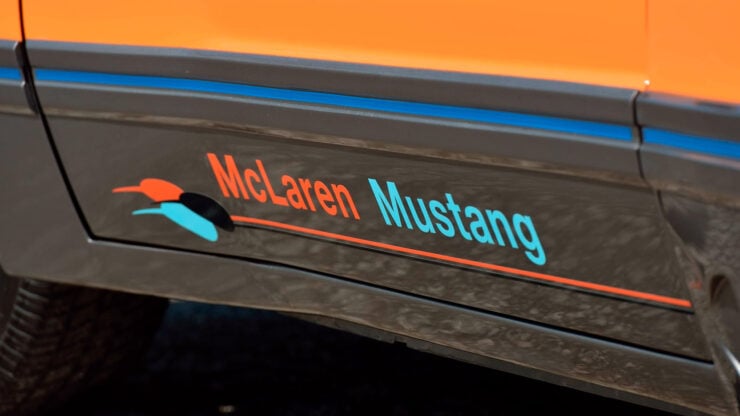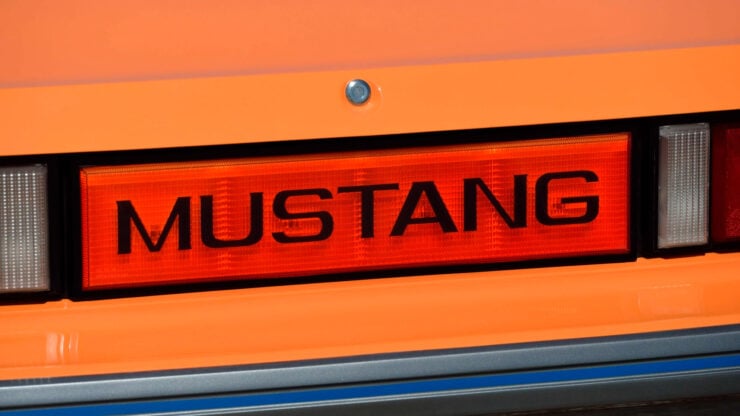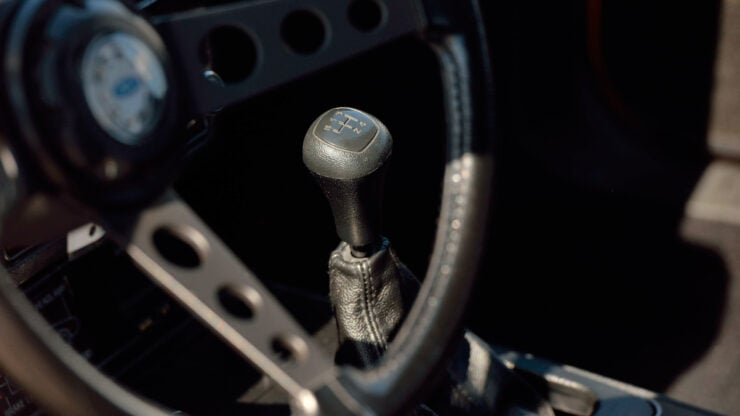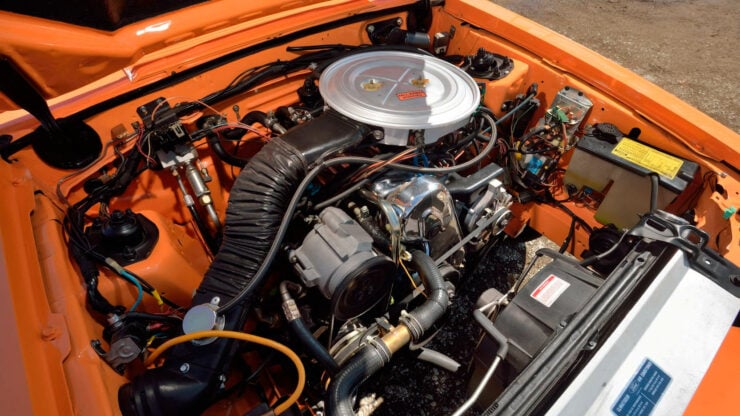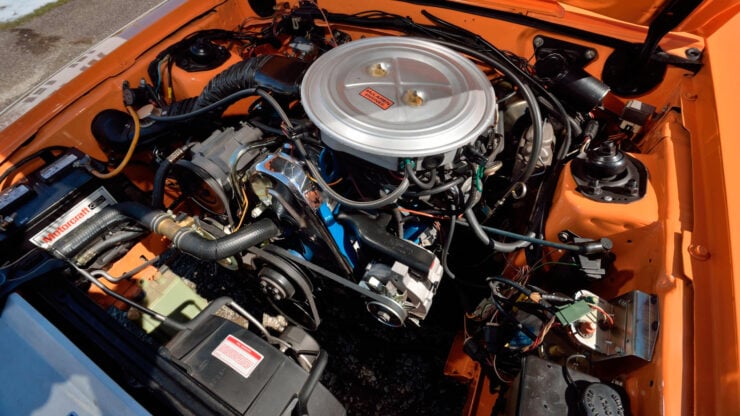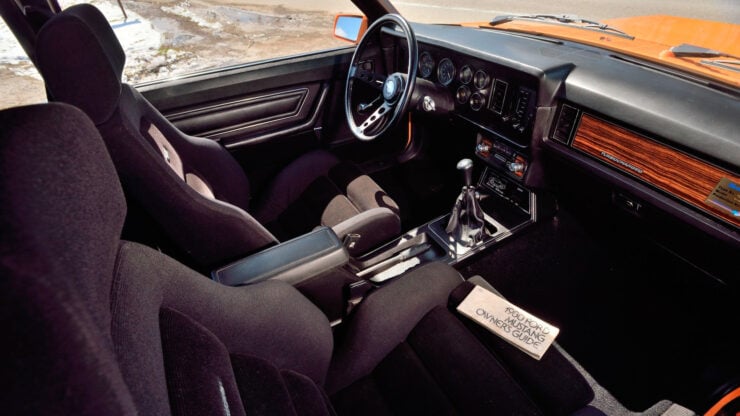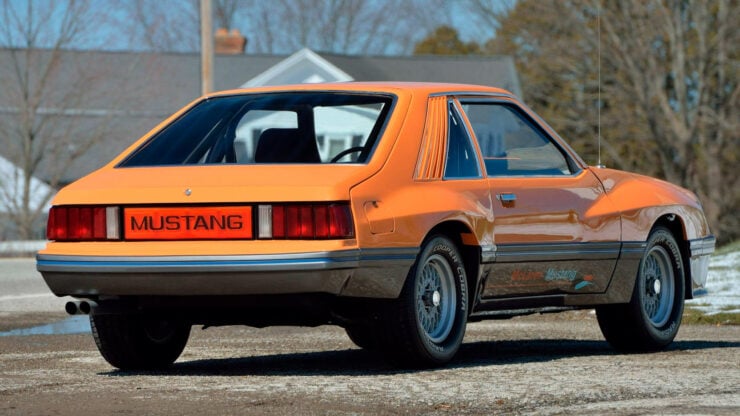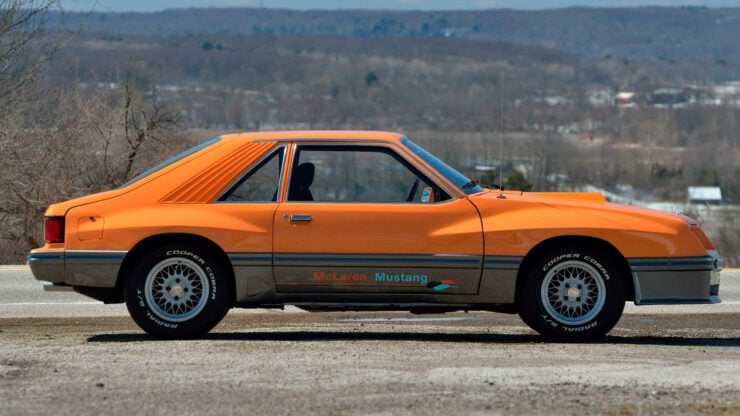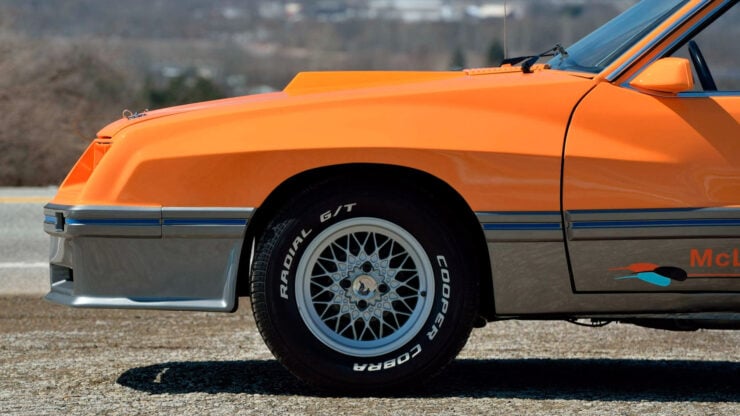This is the M81 McLaren Mustang prototype, it’s the first of a planned 250 cars that were built as a partnership between McLaren Engines and Ford’s Special Vehicle Operations (SVO). Just 10 vehicles were built in the end due to the high price, and today they’re among the rarest production Mustangs ever made.
McLaren Engines had been established in the United States in 1969 by New Zealand racing legend Bruce McLaren, also the founder of the famous Formula One team of the same name. McLaren Engines focussed on American racing series like Can-Am and Indy Car, and they consulted with many major American automakers.
Fast Facts – The M81 McLaren Mustang Prototype
- The M81 McLaren Mustang was developed by Ford’s Special Vehicle Operations (SVO) with significant input from McLaren Engines. The car would be one of the fastest and wildest production Mustangs of its era.
- In order to build the M81 McLaren Mustang a standard 1980 Fox Body Mustang was taken, steel fender flares were added along with front and rear brake ducting in the bodywork, BBS wheels, adjustable Koni shock absorbers, heavy-duty sway bars, heavy-duty springs, uprated brakes front and back, and a bolt-in roll bar.
- The standard 2.3 liter turbocharged inline-four cylinder engine was taken by McLaren Engines and fully disassembled. The head was ported and polished, it was de-burred and blueprinted, and fitted with a new variable turbo that could produce from 5 to 11 PSI – adjustable from inside the car.
- All of this work created one of the most memorable Mustangs of the time however it didn’t come cheap, with a sticker price of $25,000 USD in 1980, the equivalent to $91,576 USD in 2023. As a result just 10 were made of the originally planned 250.
McLaren Engines
McLaren Engines was founded by Bruce McLaren in Detroit in 1969. It was established to be the primary facility for the McLaren racing efforts in the United States, while McLaren in England remained focussed on the company’s Formula One racing program.
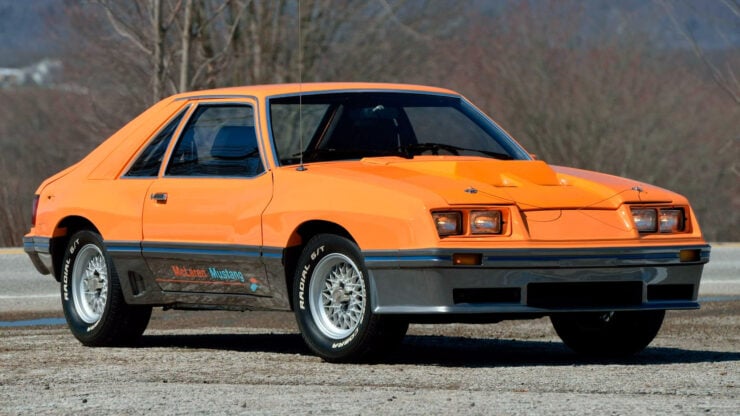
The M81 McLaren Mustang was clearly a Fox Body however it benefitted from a serious styling revamp both inside and out, and it had a much more powerful engine under the hood.
Although today the name McLaren is most famous for its long history in F1, the impact that McLaren Engines had on the North American racing scene was immense. The company built engines for McLaren’s Can-Am cars, for Indy cars, and for countless other racing teams and series.
McLaren would win five consecutive Cam-Am championships, they built engines for three Indianapolis 500 winners, and they developed the turbocharged variant of the mighty Cosworth DFV engine that powered Indy cars for both Team McLaren and Penske Racing.
McLaren Engines was acquired by Canada-based Linamar Corporation and it remains operational today as a subsidiary, working with North American automakers on engine development.
Developing The M81 McLaren Mustang
The McLaren name was well-known in the United States in the 1970s thanks to the successes of Team McLaren in Can-Am racing. The team’s bright “Papaya Orange” cars had dominated for years, all powered by highly-modified American V8s.
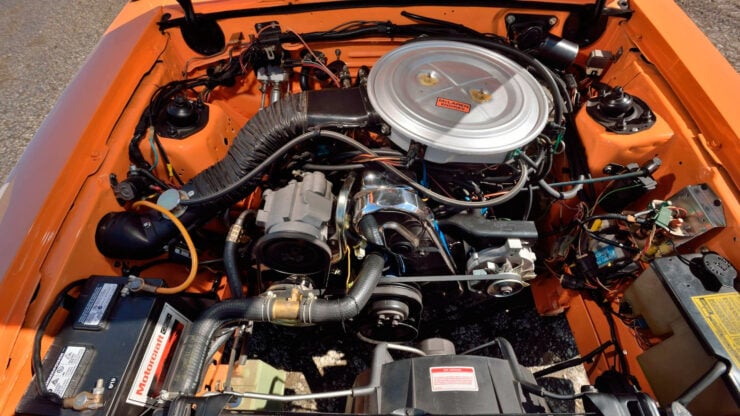
This is the 2.3 liter turbocharged inline-four. It originally produced 131 bhp however after McLaren were done with it it was making 175 bhp, and was capable of more still.
The M81 McLaren Mustang was conceived as a sort of 1980s version of the Shelby Mustangs of the 1960s, now among the most desirable muscle cars ever made. Ford’s Special Vehicle Operations (SVO) unit was founded in the early 1980s and the M81 would be their first major project.
The M81 would be followed in 1984 by the Ford Mustang SVO which was sold in much higher numbers, with almost 10,000 made between ’84 and ’86. In the United States, and around the world, new emissions restrictions and fuel efficiency standards meant that the large-displacement V8s of years gone by wouldn’t cut it, and new engine technologies were needed.
For the new Fox Body Mustang Ford had developed the 2.3 liter inline-four with a turbocharger that made almost as much power as the 4.9 liter V8, with 131 bhp vs 139 bhp. In 1980 the world was turned on its head when the V8 was lowered in displacement to 4.2 liters, and the power output dropped – for the first time a four-cylinder Mustang was more powerful than the V8 version.
It would be into this world that the M81 McLaren Mustang was born. Ford needed to make the four-cylinder turbo car seem cool and they turned to McLaren and their own new SVO department to help.
Building The M81 McLaren Mustang
The engineers at SVO took the standard Fox Body Mustang and added wide IMSA-style fender flares, wider BBS alloy wheels with wider rubber, they fitted functional brake ducts at the rear, larger brakes front and back, heavy duty springs, adjustable Koni shock absorbers, heavy-duty sway bars front and back, and a new hood with a prominent bulge.
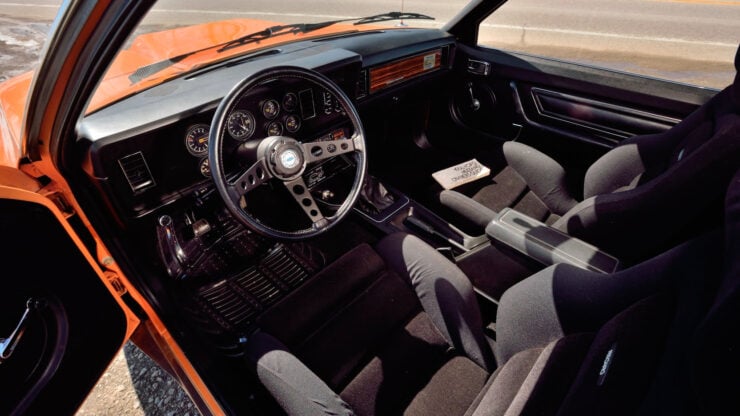
The interior of the car was also upgraded, with Recaro seats, a Racemark steering wheel, a bolt-in roll bar, and Stewart-Warner instrument gauges.
Inside the car the original front bucket seats were removed and replaced with Recaro seats, a Racemark steering wheel was added along with Stewart-Warner instrument gauges, a a bolt-in roll bar, and air-conditioning was offered as an optional extra.
Now that the car looked menacing it would need much more than the standard 131 bhp. The engine was sent over to McLaren Engines who disassembled it, the head was ported and polished, it was de-burred and blueprinted, and fitted with a new variable turbo that could produce from 5 to 11 PSI – adjustable from inside the car.
This newly improved engine was capable of 175 bhp at 10 PSI and 155 lb ft of torque at 3,000 rpm though it’s worth noting that this torque figure was at the lowest boost setting. By the standards of the time the M81 was a beast and Ford planned to sell 249 of them, with one additional car as the prototype.
Perhaps the most significant problem with the car was the cost. All those modifications didn’t come cheap, and the price of the showroom floor was $25,000 USD in 1980, the equivalent to $91,576 USD in 2023. At that price you could stretch an extra $10,000 or so and buy yourself a Ferrari 308 GTS.
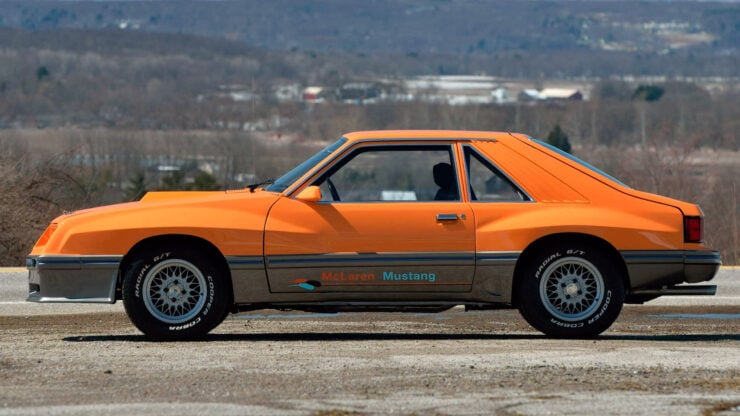
The most noticeable styling change is the addition of wide IMSA-style fenders that gave the car a purposeful look and allowed the fitment of wider wheels and rubber.
Unsurprisingly not many sold, just 10 were made including the prototype, meaning that they’re now among the rarest production Mustangs ever built. Seven were finished in Bittersweet Orange (similar to McLaren’s famous Papaya Orange), one was finished in Black, one in White, and there were two Enduros.
The 1980 M81 McLaren Mustang Shown Here
The car you see here is the original 1980 M81 McLaren Mustang prototype and it remains in remarkably original condition, with just 556 miles on the odometer.
This vehicle was featured in the December 1980 issue of Motor Trend magazine and it comes with the original bill of sale, a deluxe Marti Report, a 1980 M81 Motorsports postcard, a plastic double-sided show board, an original McLaren dealer-only poster included, and a Sideways slot car.
It’s due to roll across the auction block with Mecum in mid-May and at the time of writing there’s no price guide. If you’d like to read more about it or register to bid you can visit the listing here.
